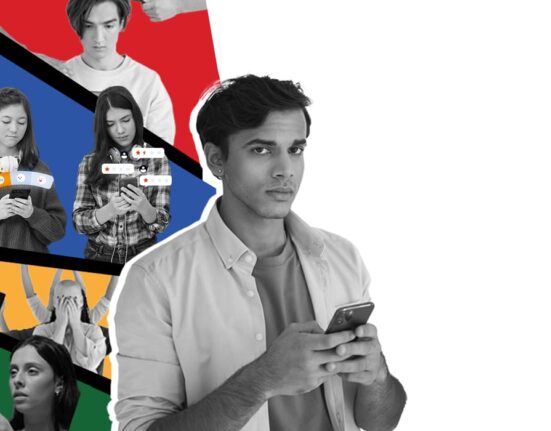Culture is an umbrella of shared customs, rituals, languages, art and more that empowers individuals with a sense of identity and helps make sense of the world around them. However, this framework is disintegrating for millions of people worldwide. The deep psychological grief that results from losing ties to one’s traditions and practices, native tongues, sacred sites, and sense of community is known as cultural mourning.
Unlike mourning a loved one, this form of loss is often invisible and unspoken, yet deeply and widely felt across generations. This article examines the numerous ways that give birth to cultural mourning, their effects on psychological well-being and suggests ways to overcome the challenge.
Read More: Cultural Shifts and Their Effects on Identity and Mental Health
Why does cultural mourning happen?
People can become disconnected from their cultures, languages and places in a variety of ways, most prominently through migration. Other ways that contribute to cultural mourning include urbanisation, globalisation, post-colonial systems and environmental degradation.
1. Migration
Migration is the movement of people away from their usual place of residence to a new place of residence, either across an international border or within a State (Fundamentals of Migration, 2024). Multiple factors, often classified as ‘push’ or ‘pull’, contribute to migration. Push factors include things like war, persecution because of one’s race, religion, or culture, and other things that cause individuals to leave their home nations.
People are drawn to new places by pull factors like higher living standards, greater job prospects, and more. It is believed that migration greatly influences the mental health of migrants due to factors like language change, loss of culture, and the disintegration of traditions.
Read More: Psychological Impacts of Migration on Adolescents
2. Urbanisation and globalisation
Urbanisation refers to the population shift from rural to urban areas, which often leads to the adoption of the dominant language and its culture to assimilate with the surrounding environment. Globalisation is the free flow of people, ideas and information, showcasing the interdependence of the world’s economies, cultures and populations. It promotes language and culture loss by promoting the dominant cultures and marginalising the indigenous ones. A suitable example of this could be the dominance of English on the internet and in various institutional and workspaces.
Read More: The Psychology Behind English Superiority
3. Post-colonial systems
By 1990, approximately 28% of the world population was controlled by different colonisers who frequently engaged in the imposition of their language and culture, leading to marginalisation and erosion of the traditions inhibited by the natives. Displacement of communities from native lands and reorganisation of societal structure all contribute to cultural mourning.
4. Environmental destruction
Environmental destruction or degradation includes climate change, deforestation, habitat loss and more. The consequences take place in the form of loss of language, culture and places as it fundamentally disrupts the ecological and social context in which they exist.
Effect of cultural mourning on psychological well-being
When individuals experience a loss of their cultural heritage, it often takes a toll on their psychological well-being. A few of its effects are discussed as below:
1. Loss of identity and belonging
Cultural mourning can manifest a weakened sense of solidarity and disrupt values and practices. This sense of loss of identity and belonging can lead to a range of psychological challenges, including grief, anxiety, depression, and a sense of isolation.
2. Negative emotions
Cultural mourning allows people to grieve not for a person but for a way of life, experiencing sadness and emptiness over the disappearance of cultural anchors. Grief in this context takes many forms, from guilt for not feeling ‘cultural enough’ to anger at the forces behind the erasure.
3. Intergenerational grief
Intergenerational grief is a term used to define the process of transmission of psychological and emotional burdens across generations. This can be displayed in the form of depression, anxiety, post-traumatic stress disorder, substance use disorders, as well as emotional dysregulation and strained family relationships.
4. Spiritual and emotional alienation
The disconnection of individuals from their values, trauma, sacred places and cultural practices can be seen in the form of spiritual and emotional alienation. Due to this, individuals may experience emotional numbness, disorientation, or even loss of purpose.
Coping with cultural mourning
Everyone experiences grief at some point in their lives, and like any other form of loss, cultural mourning can also be healed from. A few effective coping strategies are discussed below.
1. Rebuilding or reconnecting with culture
For people going through cultural mourning, rebuilding cultural ties through festivals, language revival, storytelling, and rituals can restore identity, resilience, and continuity. Research on mental health is slowly starting to consider these approaches as effective strategies that are also culturally appropriate for facilitating coping with loss and promoting adaptation.
2. Community spaces
By offering secure venues for interaction, expression, and cultural reclamation, community spaces, both real and virtual, are essential for promoting psychological health during times of cultural mourning. Face-to-face interaction in physical spaces such as community halls, patriotic gatherings and language circles can prove beneficial. Digital platforms are also a great source for providing anonymity, flexibility and peer support.
3. Therapy that includes cultural sensitivity
Culturally sensitive therapy incorporates customs, rituals, and community values into the healing process, acknowledging the profound effects of cultural background, past trauma, and collective mourning on psychological well-being. Clinicians can increase trust and enhance results by embracing cultural displays of grieving. Such as communal ceremonies, spiritual practices, or silence, and integrating them into evidence-based methods like cognitive behavioural therapy or trauma-focused therapy.
4. Cultural activism and preservation projects
Efforts under cultural activism and preservation projects help directly combat the psychological effects of cultural loss, like alienation, shame, and intergenerational trauma. These inculcate language revitalisation programs, traditional arts education, land-based cultural camps, and advocacy for Indigenous rights. They act as both resistance and restoration.
Read More: Coping with Grief and Loss: A Guide for Young Adults
Conclusion
When people lose touch with their language, customs, and identity, they suffer cultural mourning, which is a silent but profound form of sadness. Grief, alienation, and intergenerational trauma are some of its real but sometimes disregarded psychological impacts. However, healing is possible. Communities can recover pride, resiliency, and a sense of belonging through treatment, activism, and cultural revitalisation. In the rapidly evolving world of today, maintaining culture is crucial for survival, justice, and mental health, not only for the past.
Read More: Encanto, Bruno And Intergenerational Trauma
FAQs
1. Is cultural mourning always a bad thing?
Not necessarily. Mourning often involves pain, but it can also initiate renewal, resistance, and even creativity. It can encourage rediscovery, allowing individuals to reclaim and reshape their cultural identities and rediscover purpose.
2. Can dominant-culture individuals experience cultural mourning?
Yes, but it manifests differently. Even people from dominant groups can mourn the loss of regionally rooted dialects, ancestral customs, rural life, and even modernised religious practices. Everyone can sense the loss of cultural depth or continuity; therefore, mourning is not just for the oppressed.
3. How can individuals cope with cultural mourning?
Coping strategies include reconnecting with heritage, such as through language revival, storytelling and rituals, culturally appropriate therapy, community spaces, and active participation in cultural preservation initiatives
4. How is cultural mourning different from personal grief?
Personal grief centres on the loss of an individual, while cultural mourning extends to the loss of collective identity and tradition. The impact may not be easily observable, but it is just as impactful in the long term, especially across generations.
References +
(n.d.). Migration, cultural bereavement and cultural identity – PMC. Retrieved August 1, 2025, from https://pmc.ncbi.nlm.nih.gov/articles/PMC1414713/
Aeschlimann, A. (2024, June). Culturally sensitive grief treatment and support: A scoping review. SSM – Mental Health, 5. https://doi.org/10.1016/j.ssmmh.2024.100325 Ferguson, N. (2006, October 17).
Empire Falls. Vanity Fair. Retrieved August 1, 2025, from https://www.vanityfair.com/news/2006/10/empire200610
Fundamentals of migration. (n.d.). International Organisation for Migration. Retrieved August 1, 2025, from https://www.iom.int/fundamentals-migration
Jeon, S., & Park, J. H. (2025, September). The effect of grief following loss on fear of intimacy of Korean returnee cross-cultural individuals (CCIs): The moderating effects of meaning-making and cultural identity. Children and Youth Services Review, 176(C). https://doi.org/10.1016/j.childyouth.2025.108428
Language and culture as drivers of migration. (n.d.). IZA World of Labour. Retrieved August 1, 2025, from
https://wol.iza.org/articles/language-and-culture-as-drivers-of-migration/long Ritunnano, R. (2021, May 18). Self-interpretation and meaning-making processes: re-humanising research on early psychosis. Official Journal of World Psychiatric Association.
Romilus, K. (2024, August 15). Healing Across Generations: Addressing the Impact of Intergenerational Trauma Through Policy Interventions. Network for Public Health Law. Retrieved August 1, 2025, from https://www.networkforphl.org/news-insights/healing-across-generations-addressing-t he-impact-of-intergenerational-trauma-through-policy-interventions/













Leave feedback about this